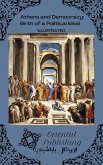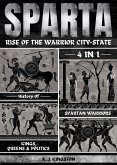The civilization was characterized by a multitude of city states with Athens and Sparta being particularly notable. Athens, considered the cradle of democracy prioritized philosophy, education and cultural pursuits. It gave rise to thinkers like Socrates, Plato and Aristotle. In contrast Sparta embraced a society that emphasized training and excellence.
The Ancient Greeks practiced a religion with a connection to their daily lives. One of their religious and sporting events was the Olympic Games held every four years in honor of Zeus.
Greek literature holds status due to works like Homers poems The Iliad and The Odyssey. Playwrights such, as Sophocles, Euripides and Aristophanes created enduring tragedies and comedies that delved into the complexities of existence.
In the realm of science and mathematics the Greeks achieved significant breakthroughs.
Prominent individuals such, as Pythagoras, Euclid and Archimedes played roles in advancing the fields of geometry and calculus. Meanwhile philosophers, like Thales and Democritus laid the foundations for reasoning.
Turning to politics Ancient Greece primarily relied on city states, each governed by its system. Athens implemented a form of democracy where citizens actively participated in decision making processes while Sparta had an disciplined structure.
Ancient Greece's influence can still be seen in various aspects of modern society, including government, philosophy, language, art, and sports. Its legacy continues to resonate in the Western world, making it one of the most impactful civilizations in history.
Dieser Download kann aus rechtlichen Gründen nur mit Rechnungsadresse in A, B, CY, CZ, D, DK, EW, E, FIN, F, GR, H, IRL, I, LT, L, LR, M, NL, PL, P, R, S, SLO, SK ausgeliefert werden.









